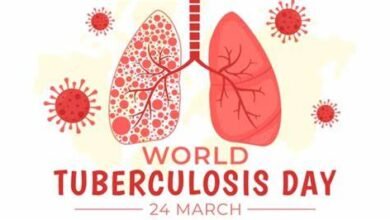World Sickle Cell Anemia Day 2024: Protecting Our Precious Children and Advancing Sickle Cell Care

Source: https://www.onlymyhealth.com/
Introduction
June 19th is World Sickle Cell Day, dedicated to raising awareness about Sickle Cell Disease (SCD), a severe inherited blood disorder affecting millions globally. This year’s theme, “Hope Through Progress: Advancing Sickle Cell Care Globally,” underscores the continuous effort for improved treatment options, enhanced access to care, and a brighter future for those affected by SCD. This day is especially relevant for our precious children, who are the most vulnerable and impacted by this disease.
Senses: Understanding Sickle Cell Disease and Protecting Children
What Is Sickle Cell Disease?
Sickle Cell Disease (SCD) is an inherited blood disorder characterized by abnormally shaped red blood cells. Unlike normal, round red blood cells, those affected by SCD are crescent or sickle-shaped. These inflexible cells can clump together, obstructing blood flow and causing severe health complications such as pain, organ damage, fatigue, and increased susceptibility to infections.
Common Symptoms of SCD:
- Severe pain episodes (vaso-occlusive crisis)
- Chronic fatigue
- Shortness of breath
- Frequent infections
- Delayed growth and development
According to the Centers for Disease Control and Prevention (CDC), SCD is the most common inherited blood disorder in the United States, affecting approximately 100,000 Americans, predominantly those of African descent. One in every 365 African American newborns is diagnosed with the disease. It also affects Hispanic populations, with an estimated prevalence of 1 in 1,600 newborns.
Child Safeguarding and Protection Principles
Protecting children with SCD requires a multi-faceted approach involving awareness, medical care, and community support. Here are some key principles:
- Early Diagnosis and Screening: Early diagnosis through newborn screening is crucial. It allows for early intervention, which can significantly improve the prognosis and quality of life for children with SCD.
- Access to Comprehensive Care: Children with SCD need access to comprehensive care, including regular medical check-ups, pain management, and specialist consultations to manage complications.
- Education and Awareness: Educating parents, caregivers, and communities about SCD is essential to ensure timely medical attention and support for children.
- Psychosocial Support: Providing psychological and social support to children and their families helps in coping with the emotional and mental challenges posed by the disease.
- Safe School Environment: Ensuring that schools are equipped to handle the special needs of children with SCD, including emergency care plans and awareness among staff, is vital for their safety and well-being.
Stones: Lessons for Parents, Government, and Society
Lessons for Parents
- Be Informed: Parents should educate themselves about SCD, its symptoms, and management strategies. Knowledge is key to ensuring timely medical intervention and proper care.
- Advocate for Your Child: Parents need to advocate for their child’s needs in healthcare settings, schools, and within the community to ensure they receive the necessary support and accommodations.
- Foster a Supportive Environment: Creating a supportive home environment that acknowledges the challenges of SCD while encouraging resilience and normalcy is crucial for a child’s emotional well-being.
Lessons for Government
- Invest in Healthcare Infrastructure: Governments should invest in healthcare infrastructure to provide accessible and affordable care for SCD patients, especially in marginalized communities.
- Promote Research and Development: Funding and promoting research into new treatments and potential cures for SCD is essential for advancing care and improving patient outcomes.
- Implement Screening Programs: Nationwide newborn screening programs for SCD should be mandatory to ensure early diagnosis and intervention.
Lessons for Society
- Raise Awareness: Society must work collectively to raise awareness about SCD, dispelling myths and reducing stigma associated with the disease.
- Support Advocacy Groups: Supporting advocacy groups that work towards better care and treatment for SCD patients can amplify efforts to bring about positive change.
- Foster Inclusion: Creating inclusive environments in schools, workplaces, and communities that accommodate the needs of individuals with SCD is essential for their integration and well-being.
Conclusion
World Sickle Cell Day 2024 is a poignant reminder of the ongoing challenges faced by those living with SCD, particularly our precious children. It is a day to celebrate progress, such as the recent advancements in gene therapy, while also reflecting on the work still needed to ensure equitable healthcare for all. By understanding SCD, safeguarding our children, and learning valuable lessons for parents, government, and society, we can move towards a future where every child with SCD has the opportunity to lead a healthy and fulfilling life. Through continued research, equitable healthcare practices, and inclusive clinical trials, we can make significant strides in combating this disease and improving the quality of life for patients worldwide.
Source of image: https://www.onlymyhealth.com/





